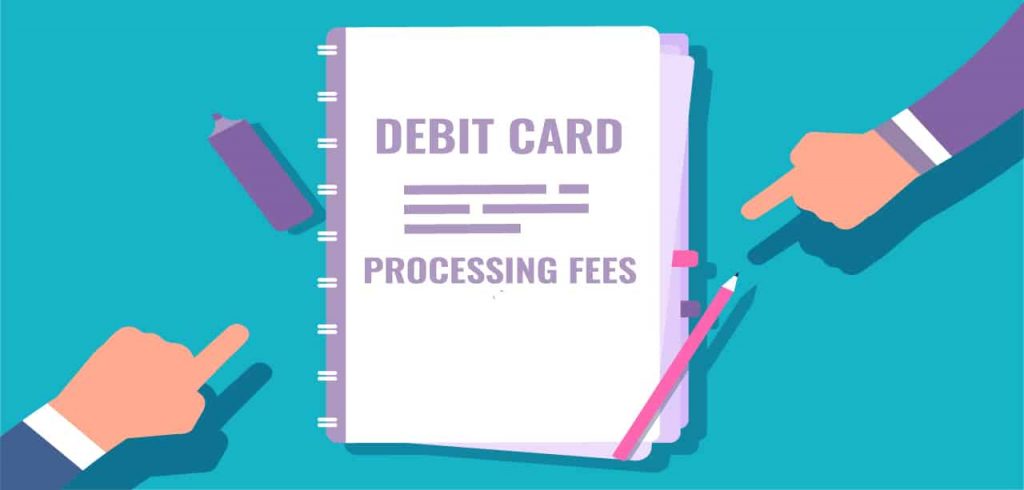Debit card processing fees are the costs that your financial institution pays to process debit card transactions. Debit cards are accepted by both merchants and ATMs for use in making purchases, withdrawing money from savings accounts, checking balances, etc.
Debit transactions can also be used as a form of identification during some online banking sessions. Debit card processing fees can vary depending on the type of card and other factors. Debit cards can be set up as either signature or PIN based transactions, with different fees associated to each.
Debit card processing fees are usually calculated as a percentage of the total purchase amount, or a flat fee may be charged for each transaction. Debit cards that offer rewards programs may have higher processing fees attached to the various transactions. Debit card processing fees may also vary depending on whether or not a business is a preferred customer for that financial institution.
Debit cards, like credit cards and checks, can be used as forms of payment by both businesses and individuals. Debit cards allow money to be transferred electronically from one bank account to another through use of a debit card, either through point-of-sale transactions or automated teller machines ( ATMs ). Debit cards are linked to the user’s bank account.
Debit card processing fees are what merchants pay to their financial institutions in order to accept these types of cards for payment. Debit card processing fees can be paid by either the buyer or the seller, depending on each transaction. Debit card processing fees are often determined by the type of card being used, so some debit cards may have different fees attached to their use than others.
Debit cards that offer rewards programs may also have higher processing fees associated with their use. Debit cards that are set up as signature transactions typically have a higher processing fee than a PIN-based debit card. Debit cards that offer rewards programs may also have higher fees attached to them, in order to allow the user to participate in this type of program.
Debit card processing fees are usually charged as a percentage of the total transaction amount for each purchase. Debit card processing fees may also be charged as a flat fee for each transaction. Debit cards that offer rewards programs may have higher fees attached to them, in order to cover the expense of this type of program.
Debit card processing fees are usually paid by both buyer and seller equally, or they can be split between each party. Debit cards that offer rewards programs may have higher fees attached to them in order to cover the expense of this program. Debit cards that offer a rewards program may also have a higher processing fee attached to the use of that card.
The Debit Card Processing Fees You Can’t See Debit card processing fees are typically charged as either a percentage of the total transaction amount for each purchase, or as a flat fee for each transaction.
Debit card processing fees are often determined by the type of card being used, so some debit cards may have different fees attached to their use than others. Debit cards that offer rewards programs may also have higher fees attached to them, in order to allow the user to participate in this type of program. Debit card processing fees are usually paid by both buyer and seller equally, or they can be split between each party.
Debit cards that offer rewards programs may have higher fees attached to them in order to cover the expense of this program. Debit cards that offer a rewards program may also have a higher processing fee attached to the use of that card. Debit cards are linked to the user’s bank account, so funds can be transferred electronically from one bank account to another through their use.
